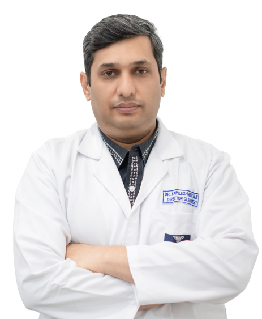For OPD:
+91-9549158888Gastrointestinal Surgery is a treatment for diseases that are related to digestion. It basically involves stomach and intestines. It is also performed on gall bladder, small intestine, pancreas and large intestine. The procedure is also used to remove tumor, cancerous or non cancerous parts of the intestine. There are several reasons for gastric system to get disrupted; it can be a disease, diet in sufficiency or stress. Sometimes gastrointestinal surgery is also performed on obese patients. To perform such surgery laparoscopic techniques are used.
Gastrointestinal Surgery
Gastrointestinal Surgery includes a variety of surgical techniques to diagnose and treat gastrointestinal disorder. Surgery can be performed on both lower and upper GI tract.
GI surgery treats disorders such as:
- Esophageal disorder
- Liver disorders
- Colorectal cancer
- GI bleeding
- Gastric acid reflux
- Gall bladder disease
- Gastrointestinal cancer
- Hernia
- Inflammatory bowel disease
GI Surgical procedures
Minimum invasive GI surgery involves laparoscopic procedure as it painless and uses minimum incision. Laparoscopic GI surgery is preferred for its low risk, minimum cut and faster recovery. With the help of camera and magnified view of the body organs, it lowers the chances of any inaccuracy.
- Appendectomy: This procedure removes an infected appendix.
- Bariatric Surgery: It is done to make the stomach smaller in size, so that less food enters the stomach. This type of surgery is performed on obese people so that they ingest less food and fewer calories are absorbed in the body.
- Colon and Rectal Surgery: In this surgery is performed on patients with colon, rectum, anus and large intestine related disorders.
- Pancreatic Surgery: Depending on the condition, it is used for treating different types of pancreatic problems.
- Cholecystectomy: It removes gallbladder to treat gallstones.
- Nissen: Treats gastroesophageal reflux diseases, also known as gastric flux, strengthening the muscle that contracts to keep the stomach acid away from the esophagus.
Risk factors involved in GI Surgery
- Infection: Surgeries often come with risk of infection. Though surgeons are very careful while the surgery and even after the surgery, still there are chances of infection.
- Pain: Modern invasive techniques have made the surgeries almost a painless experience.
- Bleeding and Blood Clots: sometimes, the patients have more clotting time which becomes risky in case of an operation as the blood takes a lot of time to clot.
Why Eternal Hospital?
The Department of gastroenterology and
GI Surgery in Jaipur at Eternal Hospital are committed to offering a wide spectrum of leading-edge treatments and modalities for the effective management of various diseases and ailments of the digestive tract.
Our specialized team, which is led by the best Gastroenterologist and GI surgeons in the country, holds immense specialization in addressing the most complex cases with utmost proficiency. All the treatments are devised by our experts after thoroughly evaluating and assessing the patient's condition by making the best use of the leading-edge diagnostic modalities available in our dedicated laboratories.
- Leading-edge innovations
- Best in class modalities
- Innovative approaches
- Comprehensive treatment and care
- Dedicated surgical and Intensive Care units
- Fully equipped labs
- 24/7 robust care


